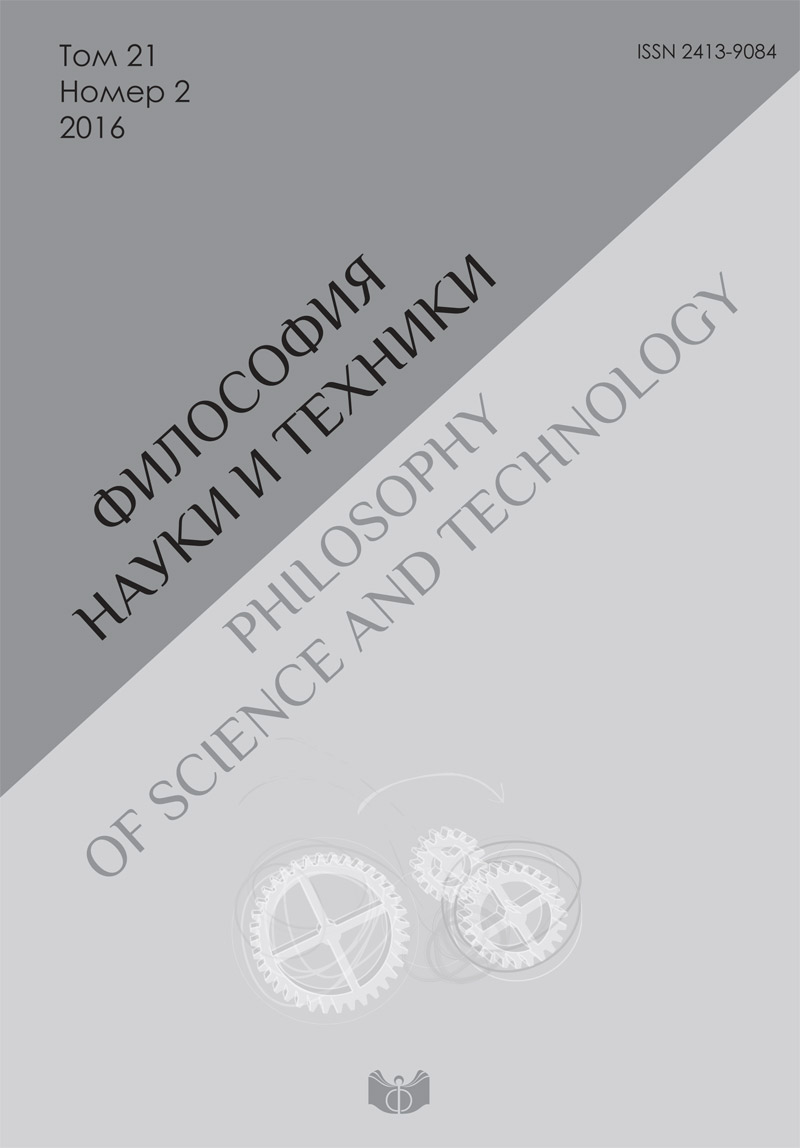Truth as a path to realism
DOI:
https://doi.org/10.21146/2413-9084-2016-21-2-9-33Keywords:
reality, realism, truth, objectivity, intersubjectivity, reference, scientific objectAbstract
The question of realism was introduced in modern philosophy under two forms. One we can call “ontological” or “metaphysical” realism, and it consists in asking whether “reality” exists independently of our cognitive activity: the thesis that it exists independently was called realism, and the thesis that reality is simply the creation of our cognitive activity was called idealism. A second meaning of the issue of realism which we can call “epistemological” is derived from a presupposition that modern philosophy adopted in epistemology: philosophers gave for granted that we know our representations (or ideas) and not reality but, admitting that our aim is to know reality, they asked whether we can be granted that our ideas correspond to reality. The statement that we can attain such an (indirect) knowledge of reality is seen as realism. Modern natural science that began in 17th century remained realist in both the classical senses: (i) because the object of investigation was considered to be a reality independent of the human investigation, and (ii) because this investigation was considered to attain a true knowledge of the said delimited domain of reality. Therefore, truth was the fundamental characteristic attributed to this new form of knowledge. However, in the beginning of the twentieth century several laws and principles of classical mechanics were proved not to hold in the newly discovered domains of science, and even fundamental concepts seemed to have lost their original meaning. The most immediate consequence of that crisis has been that scientists no longer dared to call “true” even the best founded of their statements and tried to avoid the use of the notion of truth. The way out that has been found was the invention of a kind of replacement of the notion of truth, by the introduction of the idea of objectivity. We can consider two understandings of objectivity – objectivity as intersubjectivity and objectivity as reference to objects. To support the idea of scientific realism it is important to distinguish between things and scientific objects. We should thus understand that (i) a thing can become the object of a given science as far as it is considered from the specific “point of view” of that science which determines a particular “clipping” within this thing; (ii) one single thing can be the object of an indefinitenumber of scientific investigations. Thus, we can recover the notion of truth in the sciences, provided that we are aware that this truth is always “relative to the specific objects” about which the propositions are formulated. The crisis of the old notion of scientific truth depended on having conceived it as an absolute and total truth, that is, a truth regarding things in themselves. As a consequence this truth was seen to be ruined when new aspects of reality were discovered (that is, new “domains of objects”) with which the old theories were unable to cope. The issue, however, appears under a completely different light if one is conscious that any theory has to be true only about its own objects.











